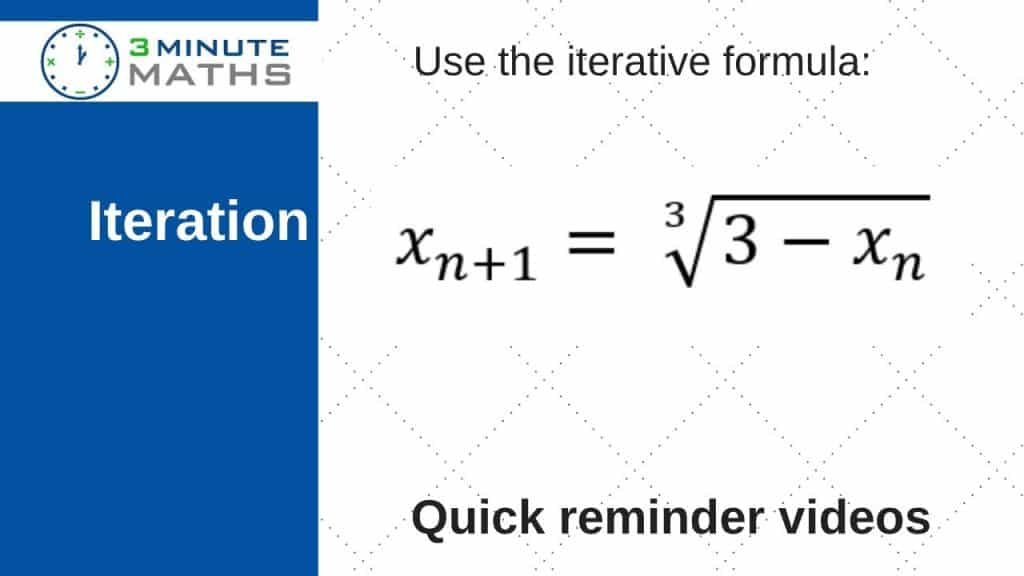This video gives an explanation of how to work with iteration, sometimes called iterative formula. It’s extremely wordy … but should be absolutely fine once you get the general idea. I’ll post some additional videos, with similar questions, in the next few days.
The question is aimed at GCSE maths grade 7+ calculator paper.
(a) Show that when f(x) = 0, the equation f(x) = x³ + x – 3 can be rearranged to give x= ∛(3 – x)
(b) Use the iterative formula with xº = 1 to find the real root of f(x) correct to 2 decimal places.
I hope it becomes a little clearer as you work through how to work with iteration questions, before moving on to the higher levels. They do take a bit of a leap forward, although should be OK if you have viewed the earlier ones.
If you would like to find out more try these!
GCSE maths iteration – part 3 (fairly difficult)
GCSE mathematics iteration – part 2
These types of questions are usually about trying to find one of the values of x, where a cubic graph crosses the x axis. ‘Iteration’ is using the ‘iterative formula’ to gradually refine your answer until you get a fairly accurate value (usually 2 decimal places).
Please do leave a comment below if you are not sure about how to work with iteration. Alternately you can view my YouTube channel and leave a comment there – I’ll always try to respond as quickly as possible.
